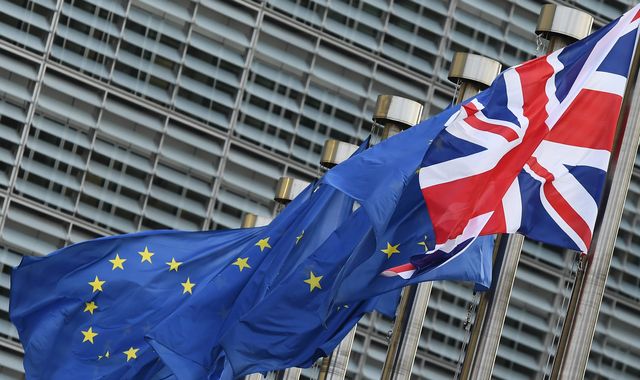Brexit: Key points of breakthrough deal
Written by News on 08/12/2017
Theresa May and Jean-Claude Juncker have set out the terms of their breakthrough deal after the first phase of Brexit negotiations.

Here are the key points from the "joint report" from EU and UK negotiators.
:: LIVE: PM secures Brexit deal with £40bn fee
:: PM’s Brexit fudge recipe might yet leave bad taste
:: Irish border
The UK is committed to avoiding a "hard border" between Ireland and Northern Ireland "including any physical infrastructure or related checks and controls", according to the document.
In the absence of an overall trade deal, the UK will maintain "full alignment" with elements of the EU single market and customs union which support the economy of the island of Ireland and the Good Friday Agreement.
In a move which appears to satisfy DUP concerns, "no new regulatory barriers" will be allowed between Northern Ireland and the rest of the UK, and Northern Ireland businesses will continue to have "unfettered access" to the UK internal market.
But the fundamental question of how there can be an open border when Northern Ireland leaves the customs union remains unresolved.
:: Financial settlement
The document does not provide a figure for the UK’s "divorce bill" but Mrs May insists the financial settlement will be "fair to the British taxpayer". The bill is expected to be £35bn-£39bn.
The UK will continue contributing to the EU budget for the years 2019 and 2020 "as if it had remained in the Union".
The financial settlement "will be drawn up and paid in euro" and the second phase of Brexit negotiations will address the schedule of payments.
:: Citizens’ rights
Mrs May says the Brexit agreement will guarantee the rights of the three million EU citizens in the UK who can "go on living their lives as before."
EU citizens living legally in the UK will be allowed to remain in the country in line with current freedom of movement principles.
The deal also allows their family members who do not live in the UK, including spouses, parents, grandparents, children and grandchildren, to join them in future.
The guarantees outlined in the document also apply to UK citizens living in EU countries.
:: European Court of Justice
The ECJ will continue to have a role in overseeing the rights of EU citizens in the UK for eight years after withdrawing – likely to spark concern among Brexit backers.
According to the document, the UK must "establish a mechanism enabling its courts and tribunals to ask the ECJ for interpretation of those rights".
It has been reported that the UK expects this to affect only a small number of cases a year, in circumstances when there is no case law.
European Council President Donald Tusk has said the UK must respect EU law during a transition period of around two years after March 2019. This would include any new laws passed by the EU27 without British involvement.
(c) Sky News 2017: Brexit: Key points of breakthrough deal





